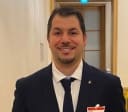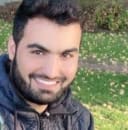Become a childcare assistant
 Proposed by JRS France Updated on il y a un an
Proposed by JRS France Updated on il y a un anChildcare assistants are on the front line when it comes to looking after children, whether in nurseries, maternity wards or hospital wards.
They contribute to the development and well-being of the youngest children. They also help to support parents.
To work as a childcare assistant, you need a State diploma as a childcare assistant. To obtain this diploma, you need to train at a nursery assistant training institute (IFAP).
Refugees with qualifications in the paramedical field that are not recognised can work quickly as nursery assistants while waiting to be able to work in their profession.
If you have experience in this field, you can have your professional experience validated (VAE) to obtain the diploma of nursery assistant thanks to the ‘Expériences sans frontières’ scheme. To do this, you need to have worked for at least one year in the fields of child care, comfort and hygiene.
You can start by working in the medico-social sector at the same time as you do your VAE.
You can start by working in the medico-social sector at the same time as you do your VAE.
How to do it?
What happens next?
Health
Work
Training
Study or work in the health sector
Find a job
Work in healthcare
Find a training course in health
15 contributors mobilized
 claudia m
claudia mAdmin
 a mugnier
a mugnierAdmin
 xavidum
xavidumAdmin
 irWriter
irWriter niknameTranslator
niknameTranslator marianneukraineTranslator
marianneukraineTranslator nour alhoudaTranslator
nour alhoudaTranslator diplosamTranslator
diplosamTranslator mariya9Translator
mariya9Translator kim.delaunayTranslator
kim.delaunayTranslator noorTranslator
noorTranslator sabirTranslator
sabirTranslator rohullah expertTranslator
rohullah expertTranslator igornrgTranslator
igornrgTranslator olga b.Translator
olga b.Translator
